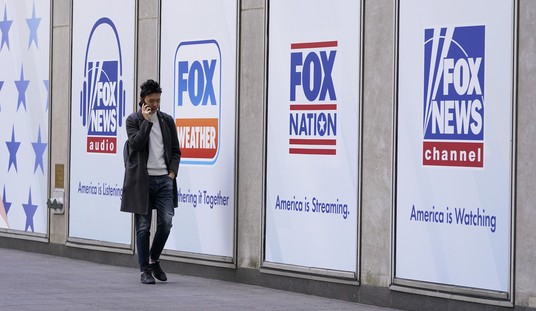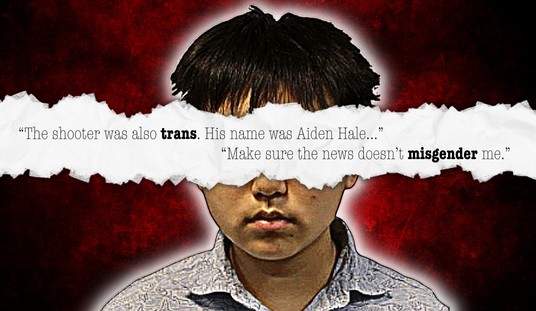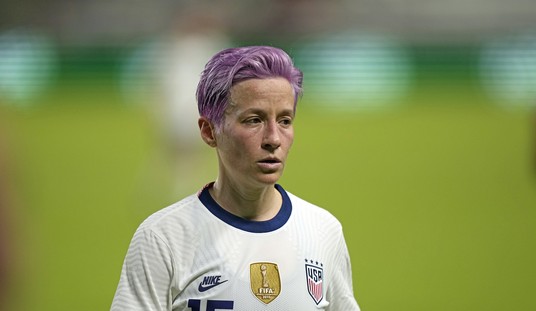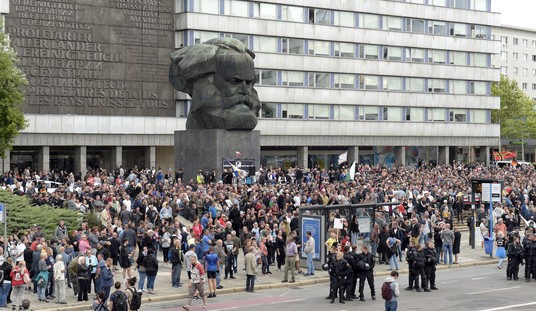Elections are not about choosing the most qualified, experienced, or intelligent candidates. The single most influential factor in an election is money. Television ads and campaign mailers are still the most effective way to influence races, and the candidates and issue advocacy organizations with the most money to spend in these areas generally win. Whether the money is given directly to a candidate, or is spent independently of a candidate is irrelevant, it all has the same effect. Who can forget the effect the Swift Boat Veterans for Truth ads had on the presidential race between George W. Bush and John Kerry.
The biggest contributors to political campaigns come from the left. Many of these organizations are closely tied to government. Unions only exist in some states by force of government regulation. This connection has gotten even more powerful this year, with the rise of the government employees’ union as the top contributor to political campaigns. The American Federation of State, County, and Municipal Employees (AFSCME) spent $87.5 million this year to help Democrats. AFSCME is ranked as the third biggest contributor to campaigns cumulatively over the past 20 years, with 98% of its money going to Democrats.
What is most disturbing about this is that government is now indirectly the largest special interest group influencing elections. How did this union get to be so powerful? Through gradual expansion of the size of government. Now that AFSCME has become this powerful, it has enormous influence ensuring that government remains bloated and continues expanding. An example of its influence: Federal employees now make double the amount of money as their counterparts in the private sector, and have been awarded higher pay and benefit increases than those counterparts for the past nine years in a row. Federal employee salaries alone have grown 33% faster than inflation since 2000. Their private sector counterparts have seen their total compensation grow by only 8.8% in that same period. Federal employee c increased despite the recent downturn in the economy. Since larger government favors Democrats, the rise of AFSCME means bad news for Republicans in the future.
Recommended
The second biggest contributor to elections this year was the U.S. Chamber of Commerce. Although the Chamber has traditionally been associated with right-leaning candidates, this is changing. In 2008, 20% of the Chamber’s campaign contributions went to Democrats. This year that percentage will probably increase, as the Chamber has endorsed several Democrats – including Democrats like incumbent Congressman Harry Mitchell in Arizona, whose record could hardly be qualified as moderate. Mitchell voted for TARP, the stimulus, Obamacare, and cardcheck. He has tried to portray himself as a moderate Blue Dog Democrat by voting against Democrat leadership on silly administrative procedures.
The Chamber is also supporting Democrat Senatorial candidate Joe Manchin in West Virginia, and spent $1.9 million to help Democrat Congressmen Glenn Nye in Virginia, Travis Childers in Mississippi, Bobby Bright in Alabama, Jim Marshall of Georgia, and Frank Kratovil of Maryland. The reason for the Chamber’s support of Democrat candidates is no doubt due to those candidates’ support for the federal TARP bailouts. Some of the top corporate contributors to the Chamber or its foundation were recipients of the bailouts, like Goldman Sachs and AIG, whose charity contributed to the Chamber’s foundation. The Chamber has traditionally been a reliable advocate for fiscal conservativeness, but appears to be shifting away from that now, much like many of the companies it represents.
Of the 15 largest contributors to political parties and Congressional candidates since 1989, 12 contributed almost exclusively to Democrats, three gave mostly equally to both parties -- and none gave mostly to Republicans. AT&T was the top contributor, contributing slightly more to Republicans than Democrats, for a total of $45 million. In 2008, however, AT&T contributed more to Democrats. ActBlue came in a close second, contributing $43 million over the past 20 years all to Democrats. Others in the top 15 that contributed mostly to Democrats are AFSCME, Goldman Sachs, International Brotherhood of Electrical Workers, American Association for Justice, National Education Association, Laborers Union, Carpenters and Joiners Union, Services Employee International Union (SEIU), Teamsters Union, American Federation of Teachers, and Communications Workers of America. The National Association of Realtors and Citigroup rounded out the top 15, contributing mostly equally to both Republicans and Democrats.
Some of those same groups also invested heavily in independent expenditures to affect political campaigns. The only organizations on the right that made the top 50 were the NRA and the Club for Growth. Approximately half of the top 50 were unions. SEIU spent more money than any other organization over the past 20 years on independent expenditures, $69 million. The National Rifle Association came in second, spending $56 million over the past 20 years. AFSCME came in third, spending $52 million. The next biggest spenders in the top 50 were the AFL-CIO with $39 million, the National Association of Realtors with $33 million, and the National Education Association with $30 million. Other far left groups in the top 50 include EMILY’s List, Human Rights Campaign, and the American Association for Justice.
Due to the Citizens United U.S. Supreme Court decision this past January, which struck down restrictions on corporations from spending money to influence political campaigns, there may be some new large corporate independent expenditures this year. The expenditures could favor the left, since the make up of the Board of Directors from the largest 20 corporations are comprised of either board members on the left or a range of viewpoints across the political spectrum; there are no boards comprised of board members on the right.
However, if contributions to Republicans and Democrats in the past by the PACs and employees of corporations are any measure, there may be some hope for Republicans. The top 10 corporate contributors in the past two election cycles include a few companies that generally give more to Republicans, like Wal-Mart. In addition, corporate giving tends to fluctuate based on which party is in power or is anticipated to be in power. Although some industries generally favor one party or another (oil and gas favors Republicans, lawyers favor Democrats), most companies started shifting the bulk of their support back to Republicans this year.
The old saying “money talks” is live and well and today in political campaigns. Attempts to regulate it through failed campaign finance reform legislation have only succeeded in slightly revising the paths used to push the money through. The usual suspects are still behind most of the big money – left-leaning organizations. The rise of big special interests representing government will further ensure that more left-leaning candidates get elected. Conservatives can only hope that more corporations take advantage of Citizens United and vote based on fiscal economic principles, not short-sighted bailout mindsets.

























Join the conversation as a VIP Member